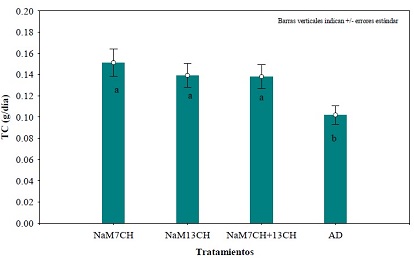Saline stress tolerance index and growth analysis of two bean varieties (Phaseolus vulgaris L. and Vigna unguiculata L., Walp.), grown in a saline medium (NaCl) and treated with homeopathic medicines
DOI:
https://doi.org/10.28940/terra.v40i0.1083Keywords:
abiotic stress, agricultural homeopathy, legumes, Natrum muriaticumAbstract
Saline stress causes a signif icant reduction in agricultural production worldwide, which is why it is a priority to develop research that contributes to mitigating its negative ef fects in an eco-friendly way. Therefore, the objective of this work was to evaluate the ef fect of homeopathic dynamizations of Natrum muriaticum (NaM) on the tolerance index relative to saline stress (ITR) and the gain of plant biomass as growth rate (TC) in the development stage. Initial vegetative stage of common bean plants Phaseolus vulgaris L. variety Quivicán (FC-Q) and bean Yorimón Vigna unguiculata L., Walp variety Paceño (FY-P). The experiment was developed under semi-controlled conditions, with a completely randomized design of factorial arrangement of 2A × 2B × 4C [(A: two bean species-variety (Común‑Quivicán; Yorimón‑Paceño), B: two levels of NaCl (0; 75mM), C: three homeopathic treatments (NaM-7CH; NaM-13CH; NaM-7CH + 13CH) and distilled water as control treatment (AD)], with f ive replications per treatment. A higher TC was observed in Common-Q beans; All homeopathic treatments applied increased TC with respect to the control AD treatment, the response being greater with NaM-7CH. The ITR increased in both species when they received NaM, being higher in FC-Quivicán, surpassing the FY-P in dry biomass of leaves (18%), stems (14%) and roots (12%). This study demonstrated that agricultural homeopathy is a viable, eco-friendly and low-cost alternative to increase the production of common beans-Quivican (P. vulgaris L.) and Yorimón‑Paceño beans (V. unguiculata L.) in areas salinized by NaCl.
Downloads
Publication Facts
Reviewer profiles N/A
Author statements
- Academic society
- Terra Latinoamericana
- Publisher
- Mexican Society of Soil Science, C.A.

















